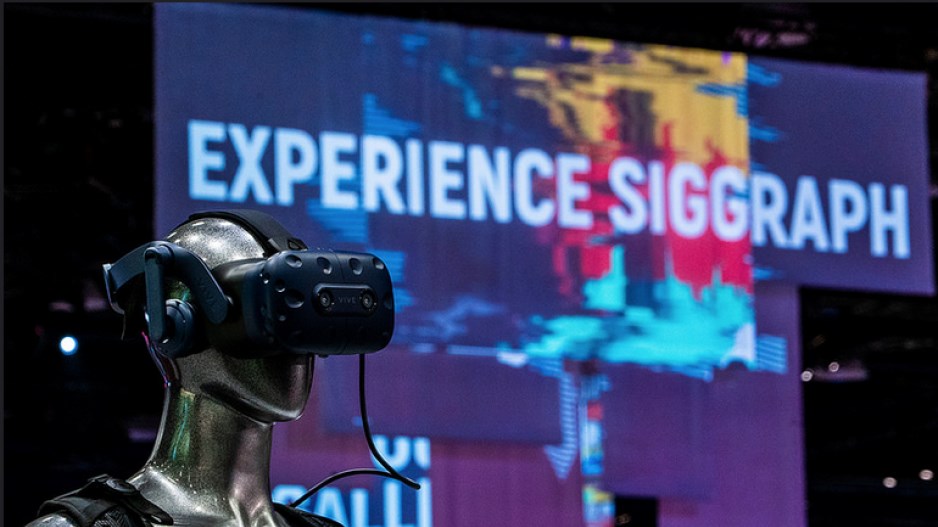If you were in downtown Vancouver from August 12 to 16, chances are that you saw hundreds of people sporting lime-green lanyards around their neck.
They were in town for the world’s premiere conference on computer graphics, SIGGRAPH, where the top tech companies and visual effects (VFX) studios from around the world show off, learn from each other and recruit talent.
This year marked the third time that Vancouver hosted the SIGGRAPH conference, which stands for the Special Interest Group on Graphics and Interactive Technologies, with more than 16,500 attendees visiting the convention centre. They were treated to hundreds of tech exhibitions, panels on the effects behind blockbuster movies such as Avengers: Infinity War and Incredibles 2 and the chance to try out new experimental technology, including a backpack-mounted robot controlled by someone other than the wearer for task assistance.
However, one topic was clearly on everyone’s mind throughout the week: virtual reality (VR). All around the conference, companies were demonstrating their latest VR projects, from Taiwan’s StarVR, which unveiled a new headset with a 210-degree field of view, to Walt Disney Animation Studios’ debut of their first-ever VR short film, Cycles.
On the exhibition floor, large companies like HP Inc. (NYSE:HPQ) took advantage of the convention centre’s large exhibit halls for giant, eye-catching booths with immersive VR pods and live-streaming stations. According to Scott Rawlings, manager of VR Go-To-Market at HP Inc. worldwide, tech companies have quickly embraced a market initially limited to game development.
“There’s a huge new market for interactive extended reality and virtual reality for commercial purposes,” said Rawlings. “It is a high growth area right now.”
One of the HP’s VR demos was a work safety experience developed by Ben Mazza and his team at PIXO VR. Although the tech industry is facing unprecedented demand for VR experiences and uses, experience in VR is relatively nonexistent, as Mazza said that everyone on his team was trained in graphics and figured out VR development while on the project.
“Five people on our team are [now] versed in VR and we all learned it on-the-fly,” said Mazza.
In fact, many at the conference reiterated that VR development isn’t inherently difficult, since it is less a new technology and more a combination of old ones, and has opened up a lot of employment opportunities for anyone trained in graphics or application development. Jane Hsu, head of global marketing at StarVR, said many in their company had previously worked in mobile development.
“VR is about optics, display, tracking – many different things,” Hsu said. “There’s a lot of technology behind a VR system, so for example, if you have experience with displays, we can train [for VR].”
Perhaps surprisingly to some, the biggest winners of the boom in demand for VR enterprise solutions have been game developers. Many VR applications aren’t developed from scratch and instead run using the Unity and Unreal game engines, which support applications with a framework for things like physics and lighting. This means that any familiarity with the engines, or developing games in general, will catch a recruiter's eye.
“People that have come into game development now have a lot more options to consider,” said Rawlings. “Game development, if you think about it, is a real-time interactive experience. You have a hand controller, a high frame-rate, low latency – all the kinds of things you need for VR.
“If you’re developing original VR content that’s purpose-built, just tap into a community of game developers.”




